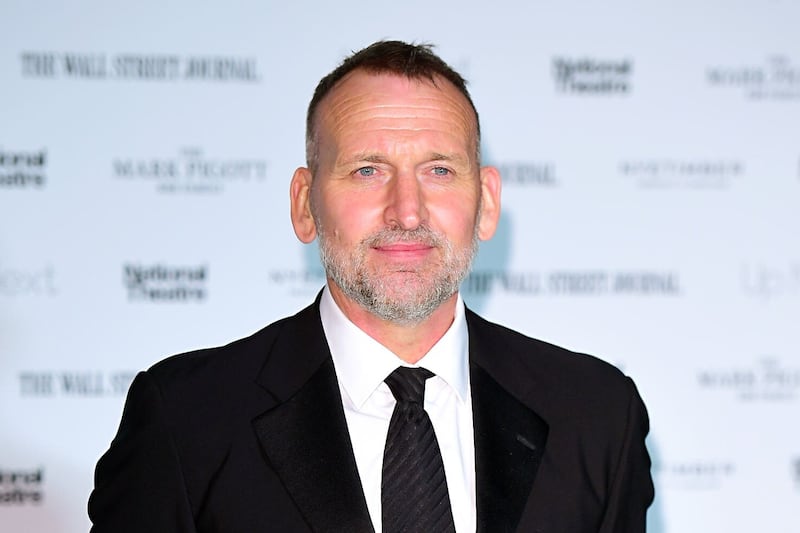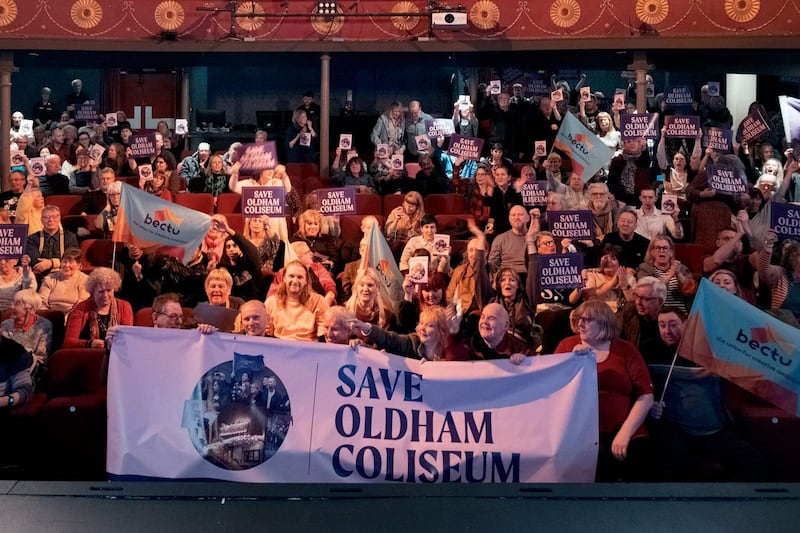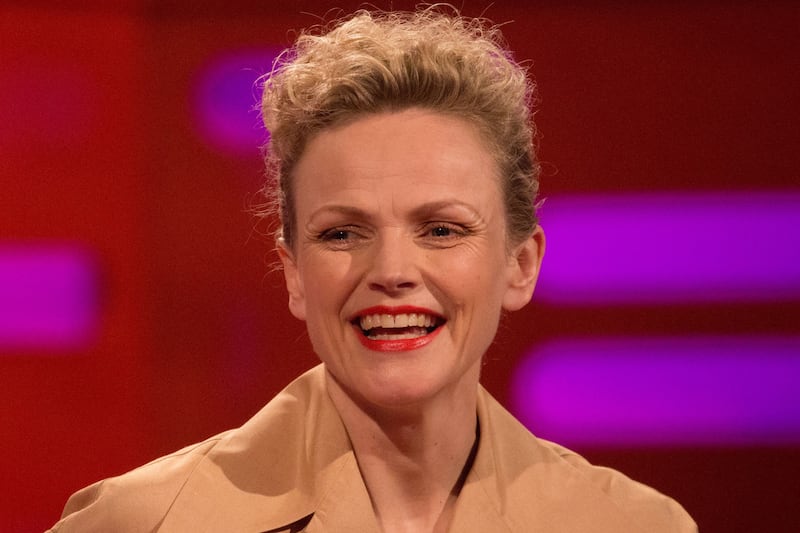THERE are some actors who cannot wait to tell you how much they suffered for a role – the emotional agonies they bravely soldiered through, the physical and mental torment they endured.
Maxine Peake is not one of those actors. In fact, she is the charming opposite.
That is despite the fact her new role, as an aspiring stand-up comedian in north-of-England drama Funny Cow, sees her character put through the wringer in numerous ways – from a troubled upbringing to brutal domestic abuse.
"It is only acting," she says matter-of-factly, in a broad Manchester accent. "Sometimes those parts are fun to do, because you experience elements of life that maybe you don't, that are very different from my life experience or where I am now.
"I sort of maybe perversely enjoy those things. It is acting, it is playing."
The film charts the rise to stardom of the comedian, starting in the tough working men's clubs and the stand-up comedy circuit of the north of England in the 1970s.
It is not a spoiler to say that those kind of venues were not particularly receptive to a woman getting up on the stage.
In fact the film sets about dismantling the myth that women lack the knack for humour, famously voiced by writer Christopher Hitchens in a Vanity Fair article headlined Why Women Aren't Funny.
"The funniest people I know are women, they all are," Peake says. "We are just not given a chance. I think men are frightened.
"It's not all men, I don't want to make a sweeping statement, but there is this myth that goes around that women aren't funny and that is what Tony [Pitts, the writer and her co-star] wanted to tackle, and show that isn't the case."
In fact Peake, now 43, once dreamed of a career in stand-up comedy before she turned her hand to acting.
"It is something that I initially wanted to do," she says. "When I was younger, I thought, 'That's it, I want to be a stand-up' and then I got older and thought, 'Not on your Nelly; that just looks absolutely petrifying'.
"You've got to have so much admiration for people who do stand-up. It was great to be able to delve in and pretend that is what my life choice was and that is the beauty of this job, that you get to have the experiences you might not have the guts to do."
Comedian John Bishop, who has a cameo in the film, is equally dismissive of aspersions that women don't have the funny bone.
"I think it's out of fashion [to say women aren't funny], because you're either funny or you're not. When you work on the comedy circuit, you walk on stage and that's it," Bishop says.
"Once you walk on, people go, 'Right, that's a man, that's a black man, a white man or it's a bald man or a woman in a dress or a woman in jeans' and after that it's gone and you're either funny or you're not funny and you have a minute to prove that.
"Audiences have well got over it but you have to look at the time this film is set in and Maxine's character was really breaking down barriers."
The role of Funny Cow was initially written for Peake by Pitts after a discussion they first had while they were shooting the gritty TV drama Red Riding: The Year Of Our Lord 1980.
"Tony had said he would love to write something for me and did I have any burning stories I'd like to tell," she says. "I told him about my fascination with working men's clubs and the performers who did the circuit.
"I talked about how tough it must have been for a woman to rise through the ranks in the northern clubs in the 1970s. Tony had grown up like me, round those clubs and so he got to work on a script. I didn't know Tony very well at this point and had little idea whether he could write or not."
A month later, they met up at his house in Yorkshire and what she read moved Peake to tears.
"It was beautiful. He had captured perfectly the atmosphere of this time. The harshness of it all but also the brutal poetry. He had created a role of a lifetime. I knew this was a film I had to do."
Another star who felt the same way was the singer Corinne Bailey Rae, who also makes an appearance in the film in a collaboration with the musician Richard Hawley.
"I heard the song and just thought it was incredible," she says. "I just really thought it would be a perfect moment in the film, a really romantic, sublime moment in a really gritty movie.
"The script was sent to me while I was on tour and I read it at 2am on my phone, the entire thing in one go, and it was as though I had seen it.
"It's so well written and so well described and Tony is such a strong writer, I thought, 'I have to do it'."
A key element of the film is the specific nature of comedy in the 1970s, which is very different to a set you might hear today.
"Those jokes are all jokes from the time," Pitts recalls. "Memories of those times, the 1970s. As a kid, I wasn't allowed to go into the club. The unimaginable glamour in a club on a Saturday night – when everyone else worked at the steelworks. A place of unimaginable sophistication.
"My dad would come back from the club on a Saturday night with six pints of lager in him and repeat some of those jokes... "
:: Funny Cow is in cinemas now.







